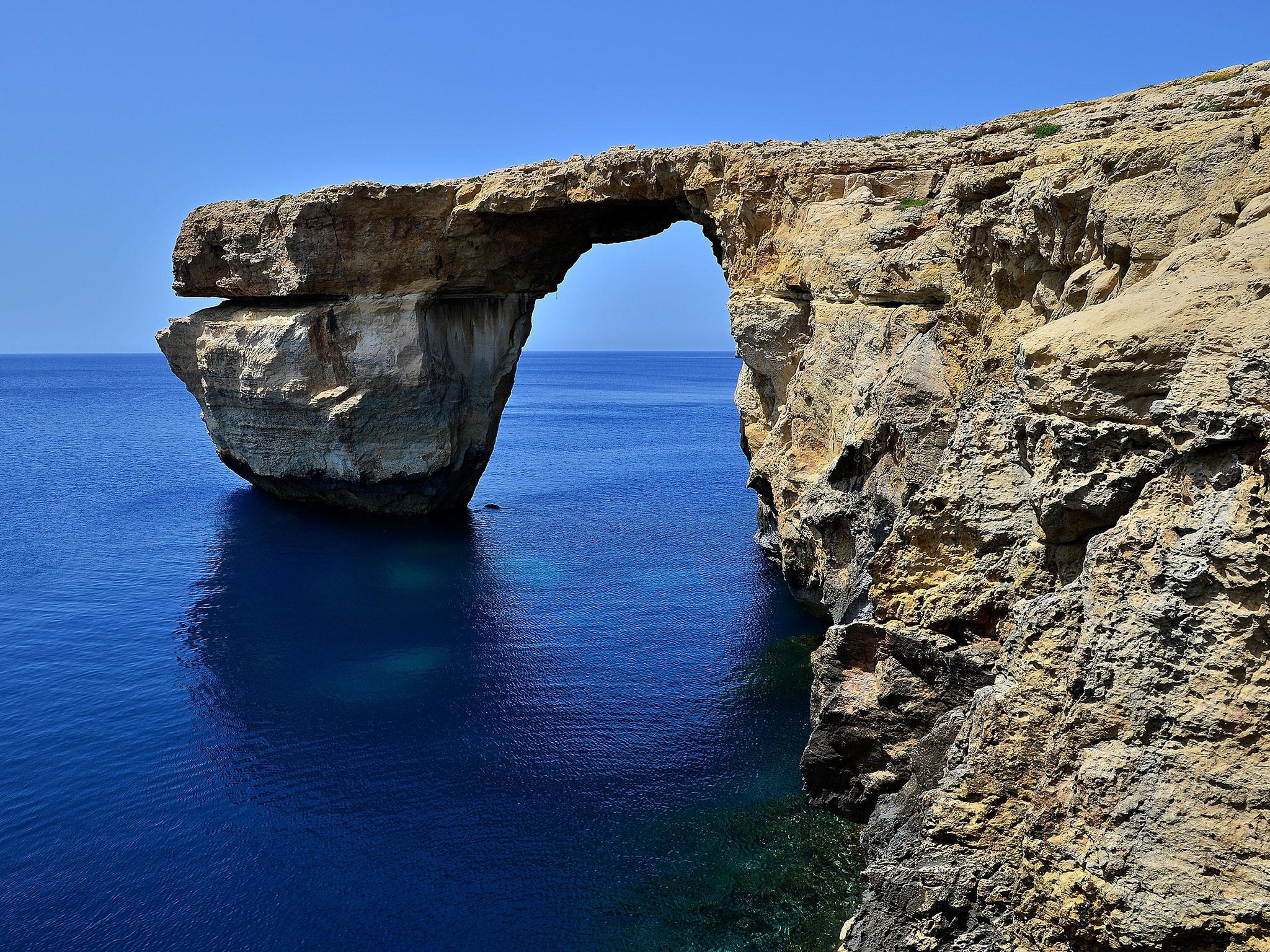Malta's Azure Window rock formation collapses into the sea
Tieqa tad-Dwerja as it is known in Malta broke apart as the country was hit by rough seas and stormy weather

Your support helps us to tell the story
From reproductive rights to climate change to Big Tech, The Independent is on the ground when the story is developing. Whether it's investigating the financials of Elon Musk's pro-Trump PAC or producing our latest documentary, 'The A Word', which shines a light on the American women fighting for reproductive rights, we know how important it is to parse out the facts from the messaging.
At such a critical moment in US history, we need reporters on the ground. Your donation allows us to keep sending journalists to speak to both sides of the story.
The Independent is trusted by Americans across the entire political spectrum. And unlike many other quality news outlets, we choose not to lock Americans out of our reporting and analysis with paywalls. We believe quality journalism should be available to everyone, paid for by those who can afford it.
Your support makes all the difference.Malta's famous Azure Window rock formation has collapsed into the sea in what the country's prime minister described as a "heartbreaking event".
Known in Malta as Tieqa tad-Dwerja, the Azure Window arched over blue seas popular with divers and featured in countless tourism brochures.
It collapsed along with the its flanking stacks as Malta was hit by rough seas and stormy weather.
Several people shared their memories of the limestone arch on social media.
Geologists had long warned that the structure, on the north-western coast of the small island of Gozo, was eroding fast and the authorities had banned visitors from walking on top of it.
Gozo resident Roger Chessell went to the coastline in the morning to take pictures and told the Times of Malta: "There was a big raging sea beneath the Azure Window.
"Suddenly, the arch collapsed into the sea with a loud whoomph, throwing up a huge spray. By the time the spray had faded, the stack had gone too."
Prime Minister Joseph Muscat said in a Tweet that the famous Mediterranean landmark had always faced destruction because of natural corrosion.
"That sad day has arrived," he wrote.
Join our commenting forum
Join thought-provoking conversations, follow other Independent readers and see their replies
Comments